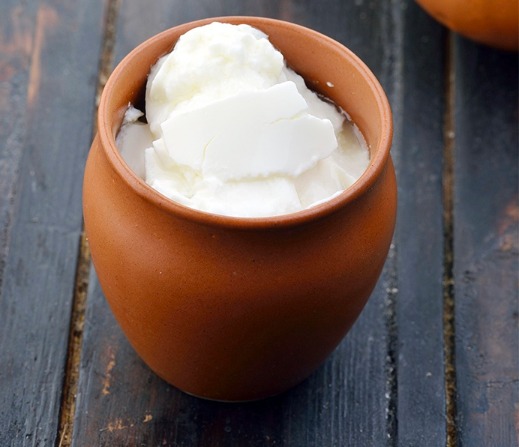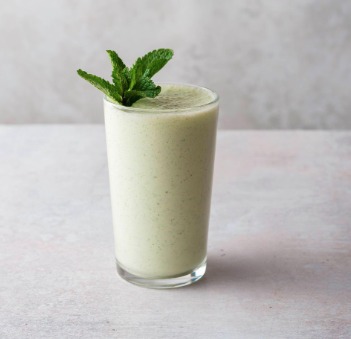In the world of nutrition and wellness, finding simple yet powerful additions to your diet can make a significant difference in your overall health. One such easily accessible and highly nutritious food is curd, also known as yogurt. Curd is not just a delicious dairy product; it’s also packed with numerous health benefits that can transform your well-being. In this article, we will explore ten incredible health benefits of eating curd, and by the end, you’ll be reaching for that bowl of creamy goodness every day.

Health Benefits of Curd
Excellent Source of Probiotics
It is teeming with probiotics, which are live beneficial bacteria that promote a healthy gut. These probiotics help in maintaining a balance of good and bad bacteria in your digestive system, which is crucial for efficient digestion and a strong immune system. Incorporating it into your daily diet can improve your gut health and overall well-being.
Boosts Digestive Health
The probiotics in curd not only balance your gut flora but also aid in digestion. They help break down food, making it easier for your body to absorb essential nutrients. If you suffer from digestive issues like bloating or constipation, a daily serving of curd can work wonders in providing relief.
Supports Weight Management
If you’re looking to shed a few pounds or maintain a healthy weight, it can be your ally. The high protein content in curd helps you feel full for longer, reducing overall calorie intake. Additionally, the calcium present in it plays a role in regulating fat metabolism.
Enhances Bone Health
It is a fantastic source of calcium and vitamin D, both of which are essential for strong and healthy bones. Regular consumption of it can reduce the risk of osteoporosis and other bone-related issues, especially as you age.
Rich in Essential Nutrients
Apart from calcium and probiotics, It is rich in several other essential nutrients, including protein, vitamin B12, potassium, and magnesium. These nutrients are vital for various bodily functions, such as muscle and nerve function, and can contribute to your overall health.
Improves Immune Function
A robust immune system is your body’s defense against illnesses. The probiotics in it stimulate the production of antibodies and enhance the activity of immune cells, thus strengthening your body’s ability to fight infections.
Promotes Skin Health
Itis not just beneficial for your internal health but also for your skin. The lactic acid present in it acts as a natural exfoliant, helping to remove dead skin cells and promoting a smoother, more radiant complexion.
Manages Blood Pressure
The potassium in it helps regulate blood pressure levels. Including curd in a low-sodium diet can be particularly helpful in maintaining healthy blood pressure, reducing the risk of hypertension.
Reduces the Risk of Heart Disease
Regular consumption of it has been linked to a lower risk of heart disease. The combination of probiotics, calcium, and potassium helps in maintaining cholesterol levels and blood vessel function.
Aids in Stress Reduction
Believe it or not, it can even help you manage stress. The rich content of vitamin B12 in curd is known to improve mood and reduce stress and anxiety levels. A soothing bowl of curd can be a great comfort food during challenging times.
What Are the Nutritional Values of Curd?
Here are the nutritional values of curd (per 100 grams):
- Calories: 61 kcal
- Protein: 3.47 grams
- Fat: 3.25 grams
- Carbohydrates: 4.66 grams
- Sugar: 4.66 grams
- Fiber: 0 grams
- Calcium: 121 milligrams
- Vitamin B12: 0.48 micrograms
- Vitamin B2 (Riboflavin): 0.12 milligrams
- Phosphorus: 110 milligrams
- Potassium: 155 milligrams
Please note that these values can vary slightly depending on the brand and preparation method of the curd. Nevertheless, curd is a rich source of protein, calcium, and essential vitamins, making it a nutritious addition to your diet.

How to Include Curd in Your Daily Diet?
Incorporating curd (or yogurt) into your daily diet is not only delicious but also offers numerous health benefits. Here are several creative and easy ways to include curd in your meals:
Yogurt Parfait: Layer it with fresh fruits, granola, and a drizzle of honey for a delightful and nutritious parfait. It’s a perfect breakfast option or a healthy dessert.
Smoothies: Blend it with your favorite fruits, such as bananas, berries, or mangoes, to create a creamy and nutritious smoothie. Add some honey or a touch of vanilla for extra flavor.
Salad Dressing: Mix it with herbs and spices to create a creamy and healthy salad dressing. It adds a tangy flavor to your salads while boosting their nutritional value.
Dips and Sauces: Use it as a base for dips and sauces. It works well for tzatziki, raita, or a creamy avocado dip. These are perfect accompaniments for snacks or meals.
Marinades: Incorporate curd into marinades for meats and vegetables. The natural acidity of curd helps tenderize meat while adding flavor.
Lassi: Enjoy a refreshing glass of lassi, a traditional Indian yogurt drink. Blend curd with water, sugar, and a pinch of cardamom or saffron for a cool and satisfying beverage.
Yogurt Bowl: Make a yogurt bowl by adding sliced fruits, nuts, seeds, and a drizzle of honey or maple syrup. It’s a wholesome and filling snack or light meal.
Baking: Substitute curd for part of the fat in baking recipes like muffins, pancakes, or cakes. It adds moisture and a pleasant tangy taste.
Curry Thickener: Add curd to curries and stews to thicken and enrich the sauce. It imparts a creamy texture and balances the spiciness.
Frozen Yogurt: Make your own frozen yogurt by mixing it with fruits and freezing the mixture. It’s a healthier alternative to commercial ice cream.
Yogurt and Cereal: Instead of milk, pour curd over your cereal. It adds a unique twist and increases the protein content of your breakfast.
Yogurt Sundaes: Create yogurt sundaes with layers of curd, nuts, chocolate chips, and your favorite toppings. It’s a guilt-free dessert option.
Yogurt-Based Marinades: Use it as a base for marinating chicken or fish. It not only tenderizes but also imparts a delightful flavor.
Stuffed Peppers or Tomatoes: Mix it with herbs and stuff it into bell peppers or tomatoes for a healthy and satisfying side dish.
Yogurt Pasta: Make a creamy pasta sauce using curd as a base. Combine it with garlic, herbs, and grated cheese for a delicious sauce.
Remember to choose plain, unsweetened it to keep added sugars at bay, and consider Greek yogurt for an extra creamy texture and higher protein content. With these versatile options, you can easily incorporate curd into your daily diet and enjoy its many health benefits.
Who Should Avoid Eating Curd?
While curd (or yogurt) is generally considered a nutritious and beneficial food for most people, there are certain individuals who may need to exercise caution or avoid it altogether due to specific health concerns or dietary restrictions. Here are some groups of people who should consider limiting or avoiding curd consumption:
Lactose Intolerant Individuals: Lactose intolerance is a common condition where the body has difficulty digesting lactose, a sugar found in milk and dairy products, including curd. People with lactose intolerance may experience digestive discomfort, such as gas, bloating, and diarrhea, after consuming curd. Fortunately, there are lactose-free yogurt alternatives available.
Milk Allergies: Some individuals are allergic to milk proteins, and it contains milk proteins. People with milk allergies should avoid curd and dairy products altogether. They may opt for non-dairy yogurt alternatives made from soy, almond, coconut, or other plant-based sources.
High Cholesterol or Heart Disease: While it is generally considered a healthy food, some dairy products can be high in saturated fats, which can raise cholesterol levels. If you have high cholesterol or are at risk of heart disease, it’s essential to choose low-fat or fat-free curd options and consume them in moderation.
Yeast Infections or Candida Overgrowth: Individuals with a history of yeast infections or those with an overgrowth of Candida, a type of yeast, may need to limit their curd consumption. Dairy products can sometimes exacerbate yeast-related health issues, so it’s advisable to consult a healthcare professional for dietary guidance.
Vegans and Dairy-Free Diets: Vegans and people following dairy-free diets for ethical or dietary reasons should avoid traditional dairy curd. Fortunately, there are numerous plant-based yogurt alternatives available, such as almond yogurt, soy yogurt, and coconut yogurt.
Specific Food Sensitivities: Some individuals may have sensitivities to certain components in it, such as additives, flavorings, or preservatives. Reading ingredient labels and choosing plain, unflavored curd can help avoid potential allergens or irritants.
Infants: Babies under the age of one should not consume regular cow’s milk or curd as their digestive systems are not yet developed enough to handle it. Breast milk or infant formula is the appropriate choice for infants.
Individuals with Kidney Stones: It contains calcium, and consuming excessive amounts of calcium can contribute to the formation of kidney stones in susceptible individuals. If you have a history of kidney stones, consult with a healthcare provider about your curd consumption.
It’s important to note that many people can enjoy it as part of a balanced diet without any adverse effects. However, if you have specific health concerns or dietary restrictions, it’s advisable to consult with a healthcare professional or a registered dietitian who can provide personalized guidance on whether it is suitable for your individual needs and circumstances.
Check out more Blogs at healthylifehacks101.com

